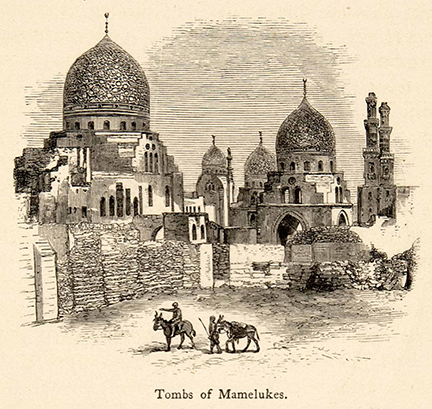Here is a very useful source for downloading pdfs of Arabic texts on a wide range of subjects. Check it out here: https://ebook.univeyes.com/disciplines
Category Archives: Islamic Sciences
Researching Islamic Manuscripts

Mahmoud Zaki has assembled a major resource on sources for the study of Islamic manuscripts, including links to major digital collections and publications. It can be accessed here. This is an extraordinary resource for anyone working on manuscripts of the Islamic era.
Online Books in Halle
Pandemics and Arab Medicine

Here is an interesting article on Qantara.
al-Qazwini Manuscript
David King on Islamic Astronomy
The historian of Islamic astronomy and mathematics, Dr. David King, recently gave a fascinating lecture at the Furqan Foundation in London.
Here is the Youtube video of the talk.

For details on King’s work, there is an informative website.
Seasonal Knowledge in the Gulf Project
This is to note that I have received a research grant from the Qatar Foundation for a study of indigenous knowledge of the seasons and time-telling in the Gulf. I have created a separate webpage to indicate progress through updates on the progress. This page is at https://tabsir.net/?page_id=2903
Webinar in Islamic Material Culture “The Rise of an Agricultural Empire”

Economy and Material Culture in the Early Islamic Empire
Bi-Weekly, Wednesday, 4-6 pm CEST Starting April 6, 2016
Islamic Material Culture
The Universität Bonn (Bethany Walker), the Ludwig-Maximilians-Universität in Munich (Andreas Kaplony), The Bard Graduate Center in New York (Abigail Balbale), and Universität Hamburg (Stefan Heidemann) are co-operating in setting up a series of webinars in Archaeology of the Middle East, Arabic Papyrology, Islamic Arts and material Culture, and Numismatics of the Middle East.
Why Agriculture?
Why agriculture and the Early Islamic Empire in material culture? Not least Bulliet’s book about the cotton boom (2009) in the Early Empire has stimulated discourse about agriculture and elite culture of the Early Islamic Empire. The webinar tutorial explores different aspects of this agriculture boom in case studies from Central Asia to the Iberian Peninsula. We see a continuation and improvement in efficiency of established forms of irrigation from Late Antiquity to the Early Islamic Empire. The new Muslim elites turned into a landholding class establishing estates and luxurious mansions. The new imperial metropolises created an unprecedented demand in foodstuffs, which was answered by bringnig more land under cultivation and introducing more efficient ways of production. Food had to be transported, and maritime and river routes were established. While some of these developments can be explored through text, material culture and archaeology allows new ways to see this boom in detail. Guest lecturers will include Corisande Fenwick (University College London), Abigale Balbale (The Bard Graduate Center, New York), Sören Stark, Institute for the Study of the Ancient World), and Kristoffer Damgaard (Carsten Niebuhr Institute, Copenhagen), and Bethany Walker (Universität Bonn).
The webinar is part of the ‘Webinar Initiative in Islamic Material Culture’ jointly organized by the Bard Graduate Center, New York, Universität Bonn, Ludwig-Maximilians-Universität, Munich, and Universität Hamburg.
Prerequisites for participation
Spoken and written proficiency in English language. The course is open to all advanced students in B.A., M.A., and PhD programs of Islamic studies, historians, art historians, and archaeologists of the Middle East. All students need a computer, a reliable internet connection, and a headset. In a personal online short skype interview in early April 2016, we will check whether all technical assets are working. Students from Hamburg have to sign up in the campus system ‘Stine’ and to contact Stefan Heidemann as early as possible to register and get the necessary introduction to the technology. Students from universities other than Universität Hamburg are welcome and have to apply with a short CV and a motivation letter in English until March, 15, 2016. These will be emailed to Prof. Stefan Heidemann at: stefan.heidemann@uni-hamburg.de. Preference is given to students from universities within the network of the webinar initiative “Islamic Material Culture”.
http://www.aai.uni-hamburg.de/voror/Personal/agricultural-empire-sommer-2016.html







